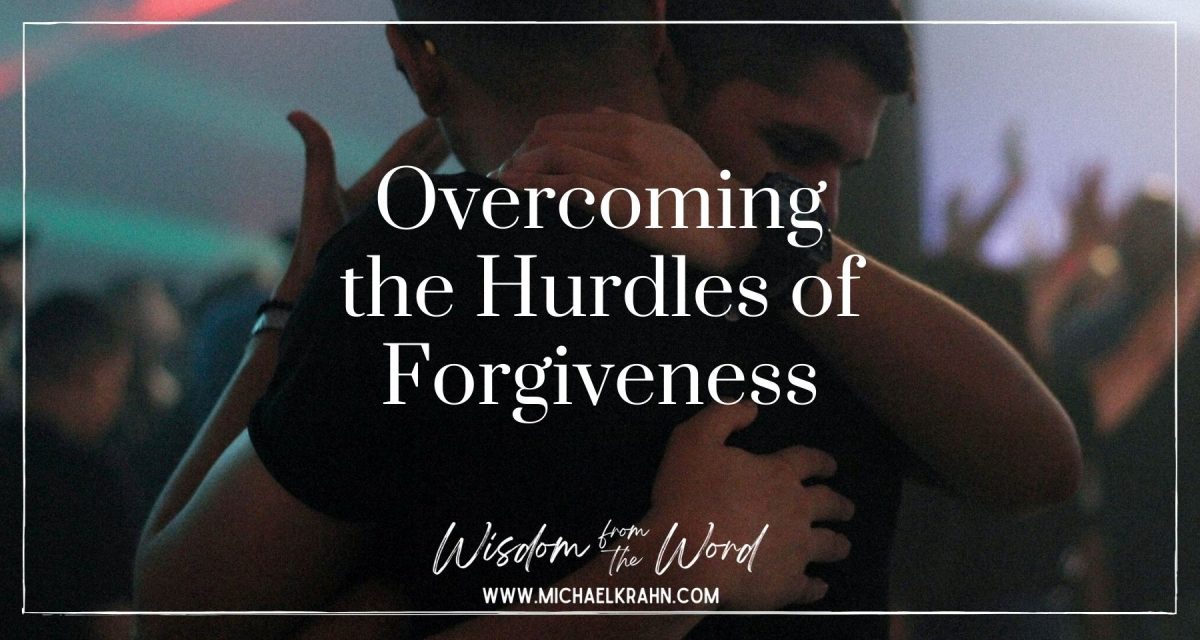(*this is a continuation of a previous post. You might want to read that one first.)
In Genesis 50:15-21, we see that after Joseph expresses his forgiveness to his brothers, they still find it hard to accept and trust him. Believing it was their father’s presence that ensured their safety, they concoct a story shortly after his passing to deceive Joseph into treating them well. This deception is unnecessary since Joseph was completely sincere in his earlier expressions of forgiveness – as we saw in Genesis 45:5,15.
“I Can’t Forgive Myself!”
Not only did they find it difficult to accept his forgiveness, in terms of a phrase commonly used today, it also seems they weren’t able to “forgive themselves” for what they did to Joseph and were assuming that he would eventually take revenge on them. But can we “forgive ourselves” for sins committed against others?
In Scripture, we see forgiveness granted to us by God and by others whom we’ve sinned against, but we don’t see anyone “forgive himself.” (For further reading on this idea, see the article “Say No to the Gospel of Self-Forgiveness”) The truth is that not only do we find it difficult to forgive, but we also find it difficult to accept forgiveness. And both of these are manifestations of a lack of faith.
Jesus on Forgiveness…

Jesus was unwavering in his pronouncements about forgiveness: “For if you forgive others their trespasses, your heavenly Father will also forgive you, but if you do not forgive others their trespasses, neither will your Father forgive your trespasses.” (Matt. 6:14-15)
When we refuse to forgive, we withhold what God has freely granted both to us and to others. We see that Joseph understands this when he says, “Do not fear, for am I in the place of God?” (50:19)
Accepting Forgiveness
Saying “I can’t forgive myself” is really an admission that we are refusing to accept what God has freely granted to us. There may be many complex reasons for this, but for those who are stuck in the loop of repeating this phrase, faith in God’s forgiveness must steadily chip away at our reluctance to accept it.
We contradict God if we claim that what we’ve done is unforgivable, for who are we to withhold from ourselves what God has freely given to us for his glory and our benefit?
You can’t forgive yourself but you can be forgiven completely. God freely offers forgiveness for any sin you have committed. You don’t need anything more than that.
















